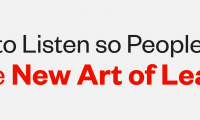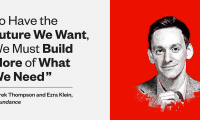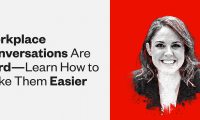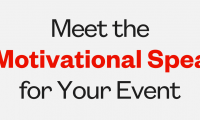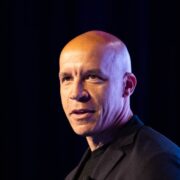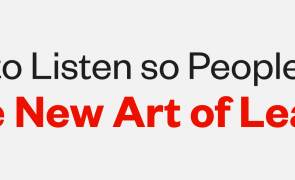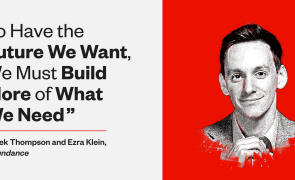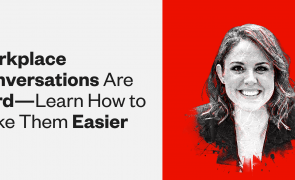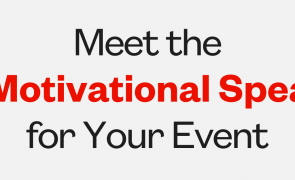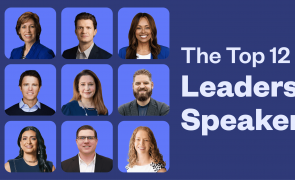The New Science of Leading Well
The workplace is changing, and leadership needs to evolve with it. Today’s leaders are managing teams that are not only more diverse in background—spanning race, gender, and culture—but also in experience, values, and expectations. Gen Z employees bring vastly different workplace expectations than their Millennial and Gen X counterparts. Employees from different cultural backgrounds may have varying approaches to teamwork, communication, and problem-solving. Hybrid and remote work have further complicated how leaders connect with their teams, build trust, and drive engagement.
At The Lavin Agency, we talk to the leaders of the business world every day. We’ve seen a growing demand for leadership strategies that don’t just accommodate differences but actively leverage them. More and more of our clients—across industries from tech to healthcare to finance—are realizing that the old leadership playbook no longer works. Today’s leaders can’t afford to rely on intuition alone. Instead, they’re turning to science-backed strategies to navigate new challenges, inspire their teams, and ultimately lighten their own workload in the process.
We work with some of the world’s leading thinkers on leadership, motivation, and workplace culture—experts who are pioneering new strategies to help leaders work with diversity, rather than struggle against it. Below, we’re offering insights from three top speakers who are helping organizations tap into the power of mentorship, inclusion, and conflict resolution to build stronger, more effective teams.
Use the Mentor Mindset to Motivate Your Younger Employees
As Gen Z enters the workforce, many managers are struggling to motivate these younger workers. A new science-backed approach can help. Psychologist David Yeager, author of the acclaimed book 10 to 25, suggests adopting what he calls “the mentor mindset,” holding young employees to high standards while offering high support—instead of the “enforcer mindset” (high standards but low support) or “protector mindset” (high support but low standards). For instance, try asking questions instead of giving instructions, and watch their initiative and motivation soar.
Inclusion Is Big. Focus on the Five Feet Around You
“When we make the challenges seem so big and so monstrous, it stops us from doing the very necessary work we can do right here.”
– Denise Hamilton
Fostering a truly inclusive environment can seem like an insurmountable task—but all you need to do is focus on the five-foot radius around you, says Denise Hamilton. An inclusion consultant sought after by Fortune 500 companies like Amazon and the United Nations, she says that small gestures can build a culture where everyone can thrive. “I don’t need you to do the big things,” she says. “I need you to invite someone to lunch who doesn’t look like you. When we make the challenges seem so big and so monstrous, it stops us from doing the very necessary work we can do right here.”
Lean Into Your Workplace Discomfort
Most of us spend more time interacting with our colleagues than we do with our relationship partners—but we don’t actually learn effective strategies for building healthy workplace relationships. That’s why we’re so uncomfortable with conflict, especially when it arises from class, race, or cultural differences. But Tessa West, NYU professor of psychology and author of Job Therapy, argues that we should actually lean into the discomfort—when we learn how to give honest feedback and manage conflict early and often, we’ll unlock the full potential of our diverse teams.
Interested? Intrigued? Keen to Learn More?
We’re proud to represent the world’s top speakers on leadership—not only cutting-edge researchers, but also CEOs, top executives, journalists, and many more. For more insights, and to bring one of them to your event, get in touch with us today.
The New Science of Leading Well
The workplace is changing, and leadership needs to evolve with it. Today’s leaders are managing teams that are not only more diverse in background—spanning race, gender, and culture—but also in experience, values, and expectations. Gen Z employees bring vastly different workplace expectations than their Millennial and Gen X counterparts. Employees from different cultural backgrounds may have varying approaches to teamwork, communication, and problem-solving. Hybrid and remote work have further complicated how leaders connect with their teams, build trust, and drive engagement.
At The Lavin Agency, we talk to the leaders of the business world every day. We’ve seen a growing demand for leadership strategies that don’t just accommodate differences but actively leverage them. More and more of our clients—across industries from tech to healthcare to finance—are realizing that the old leadership playbook no longer works. Today’s leaders can’t afford to rely on intuition alone. Instead, they’re turning to science-backed strategies to navigate new challenges, inspire their teams, and ultimately lighten their own workload in the process.
We work with some of the world’s leading thinkers on leadership, motivation, and workplace culture—experts who are pioneering new strategies to help leaders work
with diversity, rather than struggle against it. Below, we're offering insights from three top speakers who are helping organizations tap into the power of mentorship, inclusion, and conflict resolution to build stronger, more effective teams.
Use the Mentor Mindset to Motivate Your Younger Employees
As Gen Z enters the workforce, many managers are struggling to motivate these younger workers. A new science-backed approach can help. Psychologist
David Yeager, author of the acclaimed book
10 to 25, suggests adopting what he calls “the mentor mindset," holding young employees to high standards while offering high support—instead of the "enforcer mindset" (high standards but low support) or "protector mindset" (high support but low standards). For instance, try asking questions instead of giving instructions, and watch their initiative and motivation soar.
Inclusion Is Big. Focus on the Five Feet Around You
“When we make the challenges seem so big and so monstrous, it stops us from doing the very necessary work we can do right here.”
- Denise Hamilton
Fostering a truly inclusive environment can seem like an insurmountable task—but all you need to do is focus on the five-foot radius around you, says
Denise Hamilton. An inclusion consultant sought after by Fortune 500 companies like Amazon and the United Nations, she says that small gestures can build a culture where everyone can thrive. “I don’t need you to do the big things,” she says. “I need you to invite someone to lunch who doesn’t look like you. When we make the challenges seem so big and so monstrous, it stops us from doing the very necessary work we can do right here."
Lean Into Your Workplace Discomfort
Most of us spend more time interacting with our colleagues than we do with our relationship partners—but we don’t actually learn effective strategies for building healthy workplace relationships. That’s why we’re so uncomfortable with conflict, especially when it arises from class, race, or cultural differences. But
Tessa West, NYU professor of psychology and author of
Job Therapy, argues that we should actually lean into the discomfort—when we learn how to give honest feedback and manage conflict early and often, we’ll unlock the full potential of our diverse teams.
Interested? Intrigued? Keen to Learn More?
We're proud to represent the world's top speakers on leadership—not only cutting-edge researchers, but also CEOs, top executives, journalists, and many more. For more insights, and to bring one of them to your event,
get in touch with us today.

